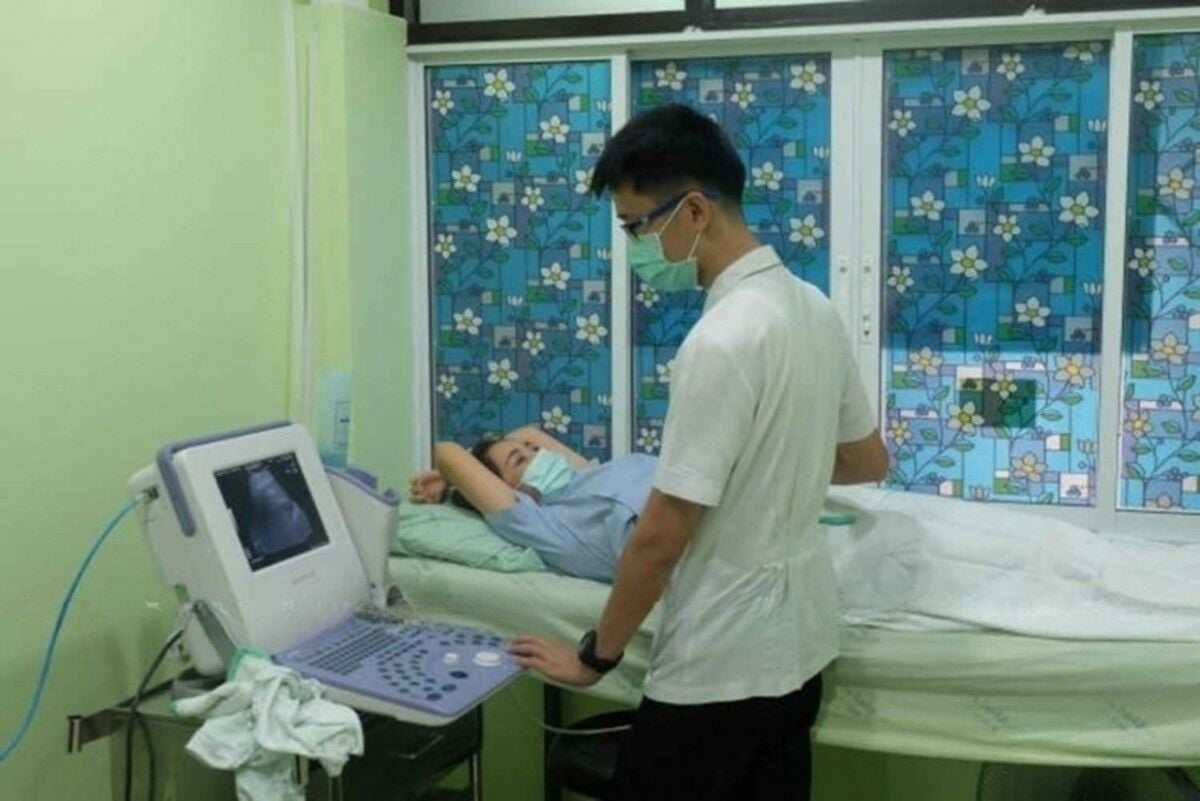Srinagarind Hospital overwhelmed by 830% rise in cancer patients

Srinagarind Hospital in Khon Kaen called on the National Health Security Office (NHSO) to address the overwhelming demand for cancer treatment, following a staggering 830% increase in patients seeking care under the Cancer Anywhere (CA) programme.
Hospital director Somsak Tiamkao yesterday, December 17, highlighted that the facility is struggling to cope with the significant rise in cancer patients referred through the NHSO’s CA programme. This surge has placed immense pressure on the hospital’s resources and staff.
Since the introduction of the programme, the number of cancer patients at Srinagarind Hospital soared by 830%.
In addition to being a medical treatment centre, the hospital also provides training for medical students. However, the influx of cancer patients has created significant challenges, particularly concerning staffing and the hospital’s capacity to both educate students and maintain healthcare services.
Somsak noted that the hospital is unable to increase its number of beds, doctors, nurses, or medical staff, which poses a risk to maintaining high medical standards.
Previously, a doctor could complete their morning patient diagnoses and then focus on teaching or research activities. Now, due to the increased workload, medical professionals are occupied well into the evening, reported Bangkok Post.
“We need to have a serious discussion with the NHSO. The programme must follow clear guidelines and procedures set by the NHSO. We are not refusing treatment, but we want cancer care to be standardised across all hospitals.”
The hospital director emphasised that all hospitals are equipped to deliver such care.
“The NHSO needs to discuss, listen, and help solve these issues instead of letting the situation escalate like a ‘broken dam.’”
ORIGINAL STORY: NHSO to keep Cancer Anywhere programme despite rising costs
The National Health Security Office (NHSO) confirmed its commitment to maintaining the Cancer Anywhere (CA) programme, which empowers patients to choose their preferred location for cancer treatment. This decision comes amidst calls from various experts to discontinue the scheme due to escalating costs.
NHSO Secretary General Jadej Thammatacharee addressed concerns regarding the programme’s new guidelines, announcing the formation of a joint working panel to devise a solution within three months.
The initiative aims to address the issues raised by major hospitals, which have expressed worries over the rising expenses associated with the CA programme. Among the hospitals voicing concerns are King Chulalongkorn Memorial Hospital, Siriraj Hospital, Ramathibodi Hospital, Chulabhorn Hospital, and Khon Kaen’s Srinagarind Hospital.
These hospitals have agreed to continue accepting cancer referrals until March, despite the financial strain. Jadej revealed that the NHSO had met with representatives from these hospitals to discuss the situation.
“The hospitals have agreed to continue accepting cancer patients from other facilities until March.”
To further tackle the financial concerns, a working panel led by Sanan Visuthisakchai, Deputy Director of Siriraj Hospital, will hold its inaugural meeting on January 15. The panel will focus on addressing the expenses incurred by transferred cancer patients, which the NHSO plans to cover.
The CA programme, introduced in 2021, has caused a surge in patient numbers at several major hospitals. These facilities have reported financial strain due to delayed reimbursements from the NHSO, which has not kept pace with the costs they have incurred.
In response, the NHSO has updated its payment conditions. From January 1, the NHSO will only cover cancer treatment, laboratory tests, and cancer-specific medications under the CA programme. Other treatments and services, such as antihypertensives, antiemetics, accommodation, food, and X-rays, will no longer be funded.
While the CA programme continues to be a vital lifeline for cancer patients, ensuring access to treatment, the NHSO and hospitals are working together to find sustainable solutions to the financial challenges posed by the initiative, reported Bangkok Post.
Latest Thailand News
Follow The Thaiger on Google News:


























